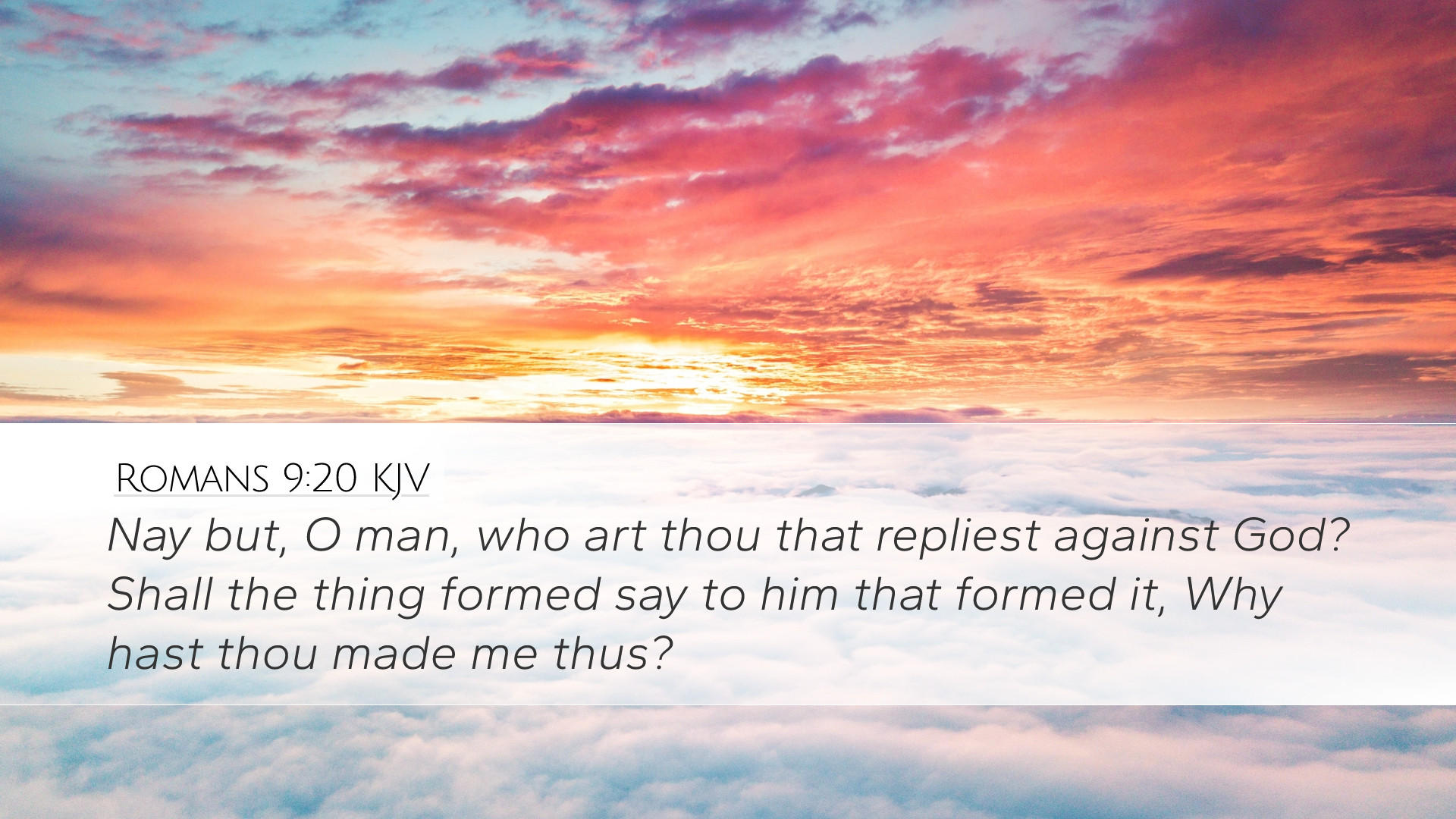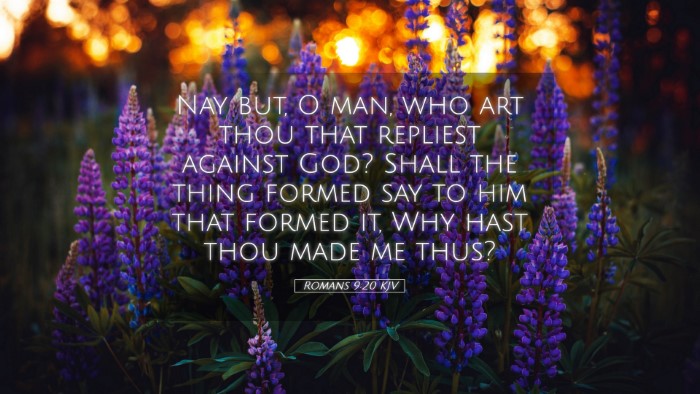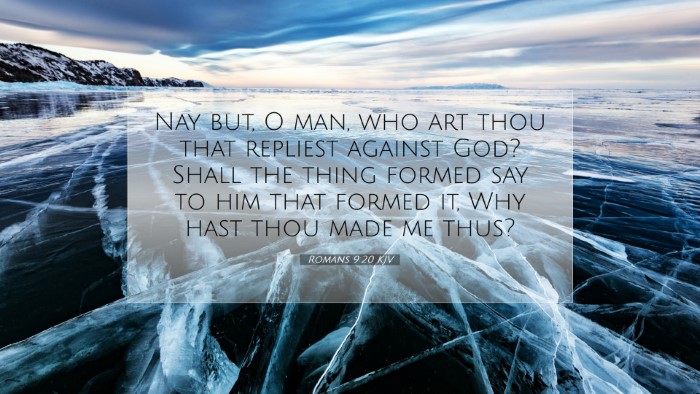Bible Commentary on Romans 9:20
Verse Context: Romans 9:20 states, "But who are you, O man, to answer back to God? Will what is molded say to its molder, 'Why have you made me like this?'" This verse comes in the midst of Paul’s discussion on God's sovereignty, divine election, and the mysteries of God's plan for Israel and the Gentiles.
Introduction
This verse addresses the fundamental relationship between humanity and divine authority. It poses a significant challenge against human presumption in the face of God's sovereign will. By examining this verse, we uncover the layers of theological implications regarding God's sovereignty, human responsibility, and the role of faith.
Commentary Insights
Understanding Divine Sovereignty
Matthew Henry emphasizes that God, as the Creator, has absolute sovereignty over His creation. The rhetorical nature of the question posed in Romans 9:20 illustrates the absurdity of questioning God’s intents or decisions. Henry notes that as created beings, humans have no standing to accuse their Creator, similar to pottery arguing with its potter. This highlights the importance of humility in light of God's overarching plan.
The Human Condition
Albert Barnes draws attention to the essence of human nature and the instinct to challenge divine authority. Barnes clarifies that the question represents human ignorance in understanding God's purposes. He notes that the clay (humanity) must recognize its place within the Creator's design, acknowledging that life and its directions are not dictated by human logic but by divine wisdom.
The Molder and the Molded
Adam Clarke elaborates on the analogy of the potter and the clay, emphasizing the craftsmanship involved in creation. Clarke points out that the very act of creation implies a purpose and intention that transcends human understanding. Each individual, like each piece of clay, has been fashioned with care and intention, suggesting a divine purpose in the diversity of human experience.
The Relevance of the Question
The question posed in Romans 9:20 is pivotal for understanding the relationship between God's will and human existence. It serves as a reminder that questioning God’s decisions or designs often stems from a limited perspective:
- Spiritual Humility: Recognizing our position relative to God fosters humility. As Clarke emphasizes, we are not here to negotiate with God about our existence but to embrace it with gratitude and reverence.
- Faith in Divine Wisdom: The assurance that God knows best encourages believers to trust in His plans, even when they are not fully comprehensible.
- Acceptance of God's Plan: This verse invites introspection into how one embraces God’s sovereign plan rather than resisting it.
Practical Applications
For pastors, students, theologians, and Bible scholars, Romans 9:20 serves as a source of reflection on our interactions with God:
- Encouragement in Trials: Understanding that God is in control allows believers to find peace amidst trials, knowing that there is a divine purpose at work.
- Proclamation of Sovereignty: In preaching and teaching, it is essential to communicate God’s sovereignty alongside His love and mercy, carefully balancing these theological concepts.
- Theological Reflection: Scholars are encouraged to explore the implications of divine sovereignty in various contexts, including soteriology and ecclesiology.
Conclusion
Romans 9:20 challenges both the intellectual and emotional faculties of believers. It calls for a humble recognition of God’s sovereignty and a reaffirmation of faith in His perfect wisdom. As we navigate our personal and corporate faith journeys, embracing the truth encapsulated in this verse can lead to a profound transformation in our relationship with God, igniting a spirit of worship and submission to His divine will.


